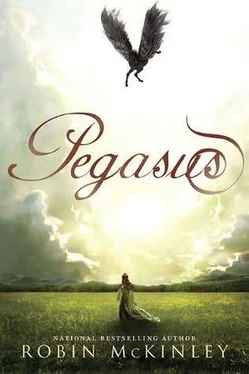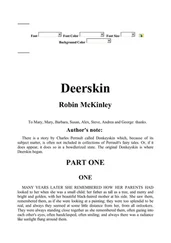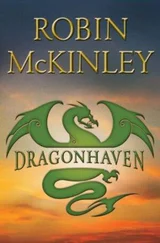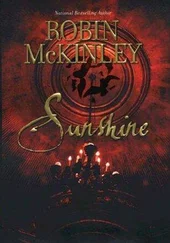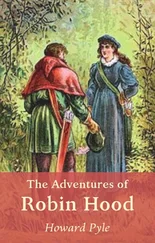Sylvi had belatedly stripped her gloves off and was fumbling for the ends of the lacing that held her in her drai .
Hey. Move before I strangle.
She wanted to say something appropriately rude—the harnesses were made so beautifully they didn’t move a finger’s breadth, or a feather-hand finger’s breadth, as the draia swung up or down—but she was too occupied. And then she realised they had stopped, and she was standing too. She let the last lace-end drop, and stepped forward, and her pegasi all moved lightly toward her, so the last ropes fell slack and her drai fell to the ground. She half heard a kind of exhale—not the pegasi—no, as if the magic were sighing in relief—and there was a faint twinkle on the ground, as if the magic had coalesced, and fallen, as a kind of shining sand.
Oh, thank you, she said. Thank you, thank you.
Lady, your closed-wing servant, said Ebon drily.
Remembering her manners she said aloud, “Genfwa, esshfwa,” which was the best all-purpose thank you she knew—the pegasi had rather an abundance of different thank yous for different occasions. There was probably a better one for now, but Sylvi’s memory refused to provide one. She turned where she stood, and all six of her bearers nodded, and five of them smiled—she couldn’t see whether black Ebon did or not, in the torch-flickering dark. But by then she was facing forward again, and the knots were let loose and rope-loops lifted off her bearers, and here was the pegasus queen herself to welcome her. Sylvi took a deep breath and bowed.
“Welhum, fwooth shile off humaa hing an swaah bohn-bluah uff ouu deeahss Ebon,” Aliaalia said, or almost sang: Welcome, fourth child of the human king and sworn bond-blood of our dearest Ebon. Ebon sounded like a verse in the song: Ehhboohn , and she swept her wings out and back in a gesture so grand and beautiful and effortless it brought a prickle of tears to Sylvi’s eyes. The queen’s golden wings caught the torchlight and for a moment there was no sky and no land, just two vast burning wings. And then she folded them and was the queen of the pegasi again, greeting the strange human child—briefly she half roused her wings to stretch her tiny feather-hands toward Sylvi, and softly brushed her temples.
Sylvi thought, even their speech is a dance, and, shyly, because her own voice seemed rough and flat, with none of the singing echoes of the pegasi’s voices, replied, “Genfwa, ihhu, Ebon sa sshira sshirafra, dooafwa swhee,” and she held her hands out, one toward the queen and one toward Ebon: the important person she was speaking to and the important person she was speaking about. It was a much grander gesture when you had wings: her arms felt very thin and naked. She hoped she’d said, Thank you, crown-wearer, Ebon is my very best friend—and was feeling a little bit pleased with herself, because it wasn’t a sentence she’d memorised, as she’d memorised her speech, and the words had come to her as if she were speaking a language she knew.
It was only then that she noticed another pegasus standing near the queen, and without knowing anything about him except that he was important enough to be standing alone by the queen she knew immediately that he was much more than that—that he was terribly important—perhaps more important than the queen, possibly as important as the king himself. The queen dropped her hands and stepped back and Sylvi was left to face this alarming pegasus by herself. She wasn’t accustomed to pegasi being alarming.
No, not quite by herself; five of her six bearers had left her, but Ebon had stepped forward and was standing by her right shoulder. Even without his silence warning her, she knew not to speak to him in front of this pegasus.
She had no idea what to do. The queen’s gesture had been both generous and flattering; putting your hands on someone’s temples in greeting was both a great honour and a great intimacy. She had no trouble resisting any temptation to reach out to this pegasus; she felt that trying to touch him might be like putting your hand in a fire—while the queen’s burning wings had seemed like a blessing. She shook herself out of her paralysis, folded her hands over her breast and bowed.
When she stood up again and looked at him, he was still looking expressionlessly back at her. Pegasi were rarely expressionless, even if you couldn’t read what the expression was, and after four years with Ebon she read most pegasi very well. After a silence that could have been no more than a few heartbeats but felt like a century he said,“And so you have come to us, Sylviianel, bond-sister to Ebon.”
She blinked. He’d spoken the words aloud—managing the individual words very clearly. The oral pegasus language all ran together; there were breaks between phrases, not between words—and the phrases tended to be long (pegasus lung capacity had something to do with this). On the rare occasions Sylvi had heard a pegasus try to speak human—usually Lrrianay—they sounded as the queen did, a kind of singing blur with no sharp consonants. She’d never heard a pegasus speak as this one just had—but he had also, she thought, half said them in her mind. In her mind ? Like Ebon? In this case—if she weren’t imagining it—it was an uncomfortable and off-balancing mode of communication, almost scratchy, as if she were sitting on a burr. No, she thought, don’t be silly, it’s just strange. And it’s too strange after the day I’ve had, she thought, hopefully or sternly, not wanting to be frightened if she didn’t have to be, when she’d only just arrived, when her father was leaving her here alone the day after tomorrow.... Her father was standing statue-still on the far side of a row of torches. She knew that stillness: he was stopping himself interfering. He was leaving the day after tomorrow. . . . But the queen hadn’t frightened her.
“Sir,” she said, “ ffffffwifwif. ” Great sir. There were several more ff ’s than she needed, because she was stuttering with nerves, but that made his greatness greater, which was perhaps a good idea. She did not try to speak silently—she didn’t want to speak silently to this pegasus, even if she was able to. She tried not to shrink toward Ebon, although out of the corner of her eye she saw that his feathers were ruffling up, which indicated he was upset too.
The queen said, “Thiiss iss Hibeehea, ouu gheaaesss shamaaahn.”
“And Speaker , ” said Hibeehea. “A service you appear not to require.”
“Oh, sir!” she blurted out, too miserable at the revelation that she’d gone wrong already to try to think what she ought to say, or whether she could say any of it in pegasi. “I only wished to show that I am trying !” Awkwardly she added, “ Ffffwhifwif. Sangharaharah. Tisianhaa! ” Sir. Beg much pardon. Am trying!
Mysteriously, this was the right thing to say. Some of the stiffness went out of Hibeehea, and the queen laughed aloud, raising her head and letting a long, light, singing heeeee slip out between her lips.
“It is partly my fault,” said her father from where he stood next to his bond-brother, and Sylvi noticed that he was not speaking slowly, as he did when, in the human palace, he hoped Lrrianay might understand. “I have told her to study your oral language and to ask Ebon to help her. I’m afraid I have led her to believe that the unusualness of the bond between her and her bond-brother puts a greater responsibility on her, in this and in other things.”
“As it does, king,” said Hibeehea. “As it does. And it is not to be expected that children should understand all the ways of speech and courtesy, especially in a stranger’s home. Nor perhaps should it be expected that an old shaman, long accustomed to the undisturbed ways of his people, should at once perceive what is happening under his nose—especially in a strange child of a people whom my people have believed for a thousand years cannot learn to speak to us as we speak to each other. Welcome, small one, you have studied well.”
Читать дальше
